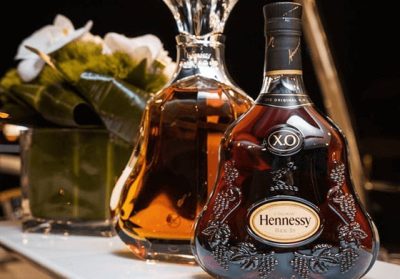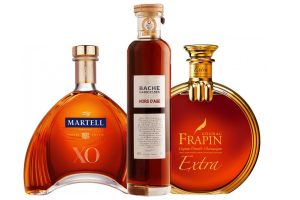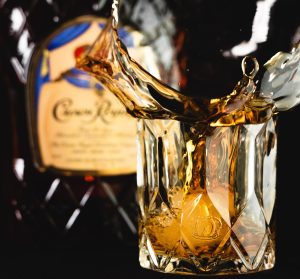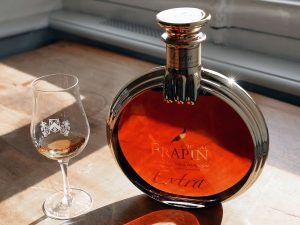Is cognac a type of brandy? This is a common question among spirit enthusiasts and those new to the world of distilled spirits. Cognac is, in fact, a type of brandy that is widely appreciated for its distinctive taste and complexity.
Brandy, on the other hand, is a distilled spirit that is made from fermented fruit juice, most commonly grapes. It is produced in many regions around the world, each with its own unique style and flavor profile. Cognac, specifically, is a type of brandy that is exclusively produced in the Cognac region of France and is subject to strict regulations regarding its production and labeling.
In this article, we will explore the relationship between cognac and brandy and delve into the intricacies of what makes cognac such a beloved and revered spirit.
What makes Cognac a type of Brandy?
Cognac is a type of brandy because it is made from distilled wine, which is the fundamental characteristic of any brandy. Brandy is a spirit that is produced by distilling wine or a fermented fruit mash and then aging the resulting liquid in wooden barrels.
Cognac, specifically, is made from white wine that is distilled twice in copper pot stills and then aged for at least two years in oak barrels. The resulting spirit is complex, with a range of flavors and aromas that are influenced by the grape varietals used, the terroir of the region, and the aging process.
The Cognac region in France has a long history of producing high-quality brandies, and the name “Cognac” is protected by law, ensuring that only brandies produced in the region using specific methods and techniques can be labeled as such.
The Origins of Cognac and Brandy
Cognac and brandy are both types of distilled spirits that have their origins in France.
Cognac is a type of brandy that is made specifically in the Cognac region of France. It is made from white grapes, which are fermented and then distilled twice. The resulting spirit is then aged in oak barrels for at least two years, although many premium cognacs are aged for much longer. The unique climate and soil in the Cognac region are said to contribute to the distinctive flavor and aroma of cognac.
Brandy, on the other hand, is a more generic term that refers to any distilled spirit that is made from fruit, usually grapes, but sometimes also apples, pears, or other fruits. Brandy can be made in many different countries, but the most famous brands are still made in France, particularly in the regions of Cognac and Armagnac. Brandy can be aged in oak barrels, but it can also be consumed without aging.
The origins of both cognac and brandy can be traced back to the 16th century when Dutch traders began distilling wine to make it more portable for shipping. The resulting spirit was known as “brandewijn,” which means “burnt wine” in Dutch. This spirit was later brought to France, where it was refined and perfected into the brandies that we know today.
Today, cognac and brandy are enjoyed all over the world and are considered to be some of the finest distilled spirits available. They are often sipped neat or used in cocktails and cooking.
The Distillation Process for Cognac and Brandy
The distillation process for cognac and brandy is similar, although there are some differences in the specific techniques used.
First, the wine is made from grapes, which are crushed and then fermented. The resulting wine is then distilled using a traditional copper pot still. In cognac production, the wine is distilled twice, while in brandy production, it is typically distilled only once.
During the distillation process, the alcohol and other volatile compounds are separated from the water and other non-volatile compounds in the wine. The resulting distillate, known as the “eau de vie” or “water of life,” is then aged in oak barrels.
The aging process is a critical step in the production of cognac and brandy, as it allows the spirit to develop its distinctive flavor and aroma. The oak barrels used for aging are often charred or toasted to impart additional flavors and aromas to the spirit.
Cognac must be aged for at least two years, although many premium cognacs are aged for much longer. Brandy can be aged for varying lengths of time, depending on the desired flavor profile.
After aging, the cognac or brandy is often blended with other spirits to achieve a consistent flavor profile. In the case of cognac, the blending process is highly regulated, with specific rules governing the types of grapes that can be used and the aging requirements.
Overall, the distillation process for cognac and brandy is a careful and precise process that requires a great deal of skill and expertise. The result is a premium distilled spirit that is prized by connoisseurs around the world.
The Grapes Used in Making Cognac and Brandy
The grapes used in making cognac and brandy are different from those used in making wine for drinking. The most common grape varieties used in cognac production are Ugni Blanc (also known as Trebbiano) and Folle Blanche, while brandy can be made from a variety of grapes, including Muscat, Chenin Blanc, and Colombard.
The Ugni Blanc grape is particularly well-suited for cognac production because it has a high acidity and low sugar content, which results in higher alcohol content when distilled. Folle Blanche, on the other hand, has lower acidity and higher sugar content, which results in a softer, fruitier flavor.
In addition to the grape variety, the quality of the grapes used is also important in determining the final flavor and aroma of the spirit. Grapes that are harvested at the peak of ripeness and are free from disease and other defects will produce a higher-quality spirit.
In the Cognac region of France, the grape harvest is carefully regulated to ensure that only the best quality grapes are used. The grapes must be harvested by hand and must meet certain minimum sugar content requirements. This attention to detail is one of the reasons why cognac is considered to be such a high-quality and prestigious spirit.
Overall, the grapes used in making cognac and brandy play a critical role in the final flavor and aroma of the spirit. The specific grape variety and the quality of the grapes used are carefully considered and monitored throughout the production process to ensure a consistent and high-quality final product.
The Aging Process for Cognac and Brandy
Cognac and brandy are both types of distilled spirits made from fermented grapes. The aging process for these spirits is a crucial step that can greatly impact their flavor and overall quality.
During the aging process, the cognac or brandy is placed in oak barrels to mature. The barrels are typically made from French or American oak, which imparts unique flavors and aromas to the spirit. The length of time that the spirit spends in the barrel can vary greatly, ranging from a few years to several decades.
As the spirit ages, it begins to take on characteristics from the oak barrel. The wood imparts flavors such as vanilla, caramel, and spice, which can complement the fruity and floral notes of the spirit. The aging process also allows the spirit to develop a smooth and rounded mouthfeel with a rich and complex flavor profile.
Cognac and brandy are typically aged using a system called “solera aging,” which involves blending different barrels of the same spirit to create a consistent flavor profile. This process ensures that each bottle of cognac or brandy has a similar taste, regardless of when it was bottled.
Overall, the aging process is an essential step in the production of cognac and brandy. It allows these spirits to develop their unique flavor profiles and ensures that each bottle has a consistent taste and quality.
The Classification System for Cognac and Brandy
The classification system for cognac and brandy is based on the age of the spirit, which is determined by the length of time it has spent aging in oak barrels.
The following categories are commonly used:
- VS (Very Special): This category is for cognacs and brandies that have been aged for at least two years.
- VSOP (Very Superior Old Pale): This category is for cognacs and brandies that have been aged for at least four years.
- XO (Extra Old): This category is for cognacs and brandies that have been aged for at least six years, although many XO cognacs are aged for much longer.
In addition to these categories, some producers may use their own age statements or classifications to indicate the age and quality of their spirits. For example, some brandies may be labeled as “aged” or “matured” to indicate that they have spent a significant amount of time in oak barrels.
It’s worth noting that the age of cognac or brandy does not necessarily indicate its quality. Factors such as the quality of the grapes used, the distillation process, and the type of oak barrel used can all impact the final flavor and quality of the spirit. As such, it’s important to taste a variety of spirits to determine which ones suit your personal taste preferences.
The Flavor Profile of Cognac and Brandy
Cognac and brandy have unique flavor profiles that are influenced by several factors, including the type of grape used, the distillation process, and the aging process.
Here are some of the key flavor characteristics of cognac and brandy:
- Fruity: Cognac and brandy often have fruity notes, such as dried apricot, peach, and fig. These flavors can be more pronounced in younger spirits.
- Floral: Many cognacs and brandies also have floral notes, such as jasmine or iris. These notes can be more prominent in lighter, more delicate spirits.
- Oak: The aging process in oak barrels can impart flavors such as vanilla, caramel, and spice to cognac and brandy. These flavors can be more pronounced in older spirits that have spent more time in the barrel.
- Nutty: Some cognacs and brandies have nutty flavors, such as almond or hazelnut.
- Earthy: Some cognacs and brandies also have earthy notes, such as leather or tobacco. These flavors can be more pronounced in darker, more full-bodied spirits.
Overall, the flavor profile of cognac and brandy can be quite complex and can vary depending on the producer, the aging process, and other factors. Tasting a variety of spirits can help you develop your palate and appreciate the unique characteristics of each one.
How to Serve and Enjoy Cognac and Brandy
Cognac and brandy are typically served as an after-dinner drink, either on their own or as part of a cocktail.
Here are some tips for serving and enjoying cognac and brandy:
- Glassware: Cognac and brandy are traditionally served in tulip-shaped glass, which allows the aromas to concentrate at the top and allows you to appreciate the color and clarity of the spirit.
- Temperature: Cognac and brandy are best served at room temperature or slightly warmer, as the flavors and aromas can be more pronounced. You can warm the glass in your hands or place it in a warm water bath to bring the temperature up slightly.
- Pouring: When pouring cognac or brandy, use a small amount (about an ounce or two) to start. This allows you to appreciate the flavors and aromas without overwhelming your palate.
- Sipping: Take small sips of cognac or brandy and allow the flavors to develop on your palate. Swirling the glass can help release the aromas and flavors.
- Pairing: Cognac and brandy can be enjoyed on their own or paired with a variety of foods, such as cheese, chocolate, or dried fruits.
- Cocktails: Cognac and brandy can also be used in cocktails, such as a classic Sidecar or a Brandy Alexander. Experiment with different recipes to find your favorite cocktail using these spirits.
Overall, cognac and brandy are complex and flavorful spirits that can be enjoyed in a variety of ways. Experiment with different serving methods and pairings to discover the unique characteristics of each one.
Differences between Cognac and Other Types of Brandy
Cognac is a type of brandy that is produced exclusively in the Cognac region of France, and it must adhere to strict production regulations.
Here are some of the key differences between cognac and other types of brandy:
- Production region: Cognac can only be produced in the Cognac region of France, while other types of brandy can be produced in a variety of regions around the world.
- Grapes: Cognac is made primarily from the Ugni Blanc grape, while other types of brandy may use different grape varieties or a blend of grapes.
- Distillation: Cognac is double distilled in copper pot stills, while other types of brandy may use different types of stills or different distillation methods.
- Aging: Cognac must be aged in oak barrels for at least two years, while other types of brandy may have different aging requirements or no aging requirements at all.
- Blending: Cognac is typically blended from different vintages and aged in a process called “marriage,” which allows the flavors to develop and mature. Other types of brandy may be blended in a similar way, but it is not required.
- Flavor profile: Cognac has a distinct flavor profile that is influenced by the production process, including fruity, floral and oak notes. Other types of brandy may have different flavor profiles depending on the grape variety, aging process, and other factors.
Overall, cognac is a unique type of brandy that is defined by its production region, grape variety, and production process. While other types of brandy may share some similarities, each one has its own unique characteristics and flavor profile.
Popular Brands of Cognac and Brandy
There are many popular brands of cognac and brandy, each with its own unique flavor profile and production process.
Here are a few examples:
- Hennessy: One of the most well-known cognac brands in the world, Hennessy has been producing cognac since 1765. Their cognacs are typically characterized by fruity and oak notes, and they offer a range of products from VS (Very Special) to XO (Extra Old).
- Remy Martin: Another popular cognac brand, Remy Martin, has been producing cognac since 1724. Their cognacs are typically characterized by floral and fruity notes, and they offer a range of products from VSOP (Very Superior Old Pale) to XO.
- Courvoisier: Founded in 1809, Courvoisier is known for its smooth and elegant cognacs, which are typically characterized by fruity and oak notes. They offer a range of products from VS to XO.
- Martell: One of the oldest cognac houses, Martell has been producing cognac since 1715. Their cognacs are typically characterized by fruity and floral notes, and they offer a range of products from VS to XO.
- E&J Gallo: One of the largest producers of brandy in the world, E&J Gallo is known for its affordable and approachable brand. Their products include E&J VS and E&J XO.
- Torres: A Spanish brandy producer, Torres is known for its smooth and fruity brandies, which are typically made from a blend of grape varieties. Their products include Torres 10 and Torres 20.
- St-Rémy: A French brandy producer, St-Rémy is known for its smooth and mellow brandies, which are typically aged in oak barrels. Their products include St-Rémy VSOP and St-Rémy XO.
These are just a few examples of popular cognac and brandy brands. There are many other producers around the world, each with its own unique style and flavor profile.
Health Benefits of Drinking Cognac and Brandy in Moderation
Cognac and brandy are types of distilled spirits made from fermented grapes. While excessive alcohol consumption can have negative effects on health, moderate consumption of these spirits can have some potential health benefits.
- Improved Cardiovascular Health: Drinking moderate amounts of cognac or brandy may have positive effects on heart health. These spirits contain antioxidants that can help reduce inflammation and protect against damage to blood vessels, potentially lowering the risk of heart disease.
- Digestive Aid: Cognac and brandy have been traditionally used as digestive aids due to their warming and soothing properties. They can help stimulate the digestive system and alleviate stomach discomfort.
- Stress Relief: Moderate consumption of cognac or brandy may also have stress-reducing effects. These spirits contain compounds that can have a calming effect on the body and mind, promoting relaxation and reducing anxiety.
- Potential Cognitive Benefits: Some studies suggest that moderate alcohol consumption, including cognac and brandy, may have cognitive benefits. This includes improved memory and reduced risk of dementia and Alzheimer’s disease. However, more research is needed in this area.
- Potential Cancer Prevention: The antioxidants found in cognac and brandy may also have cancer-fighting properties. These compounds can help protect against damage to cells and DNA, potentially reducing the risk of certain types of cancer.
It is important to note that excessive alcohol consumption can have negative effects on health, including increased risk of liver disease, high blood pressure, and some types of cancer. Therefore, it is recommended to consume cognac and brandy in moderation, with a recommended limit of one to two standard drinks per day for men and one standard drink per day for women.
Conclusion
If you need clarity on the question of whether is cognac a type of brandy, then we have got you covered on this page. Cognac is a type of brandy that is made exclusively in the Cognac region of France using specific production methods.
All cognacs are brandies, but not all brandies are cognacs. The unique terroir and production techniques used to make cognac give it a distinct flavor and character that sets it apart from other types of brandy.




